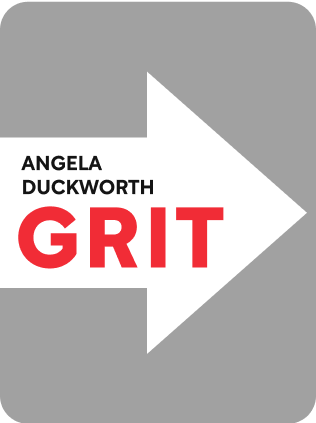

This article is an excerpt from the Shortform book guide to "Grit" by Angela Duckworth. Shortform has the world's best summaries and analyses of books you should be reading.
Like this article? Sign up for a free trial here .
What are the three levels of engagement? Which level is the most effective for learning a skill?
According to Angela Duckworth in Grit, the three levels of engagement are play, testing, and deliberate practice. Duckworth thought that deliberate practice was the only way to really improve at something, but many experts disagree and say that play and testing are just as important.
Continue reading to learn more about the three levels of engagement, according to Angela Duckworth.
The 3 Levels of Engagement With an Interest
Duckworth identifies three levels on which a person can engage with their interest. Deliberate practice is just one of those levels, but, she argues, it’s the only level where a person will improve a skill. The three levels of engagement are:
- Play: A person has fun with their interest. A tennis player might bounce the ball around with a friend. A swimmer might play in the pool.
- Testing: They quiz themselves. A tennis player might challenge his coach to a game. A swimmer might race a friend.
- Deliberate practice: They engage with their interest using the deliberate practice steps outlined in the section above—setting a stretch goal, striving for it, listening to feedback, incorporating feedback, conquering their goal, and then setting another.
The first level, play, is too casual an interaction with a skill to see improvement. It’s akin to playing pickup football with your friends every day because you enjoy it—you might do this every day for years, but if you only play in a casual, fun way, you’re not going to get truly good at football.
The second level is useful for figuring out where your weaknesses lie so that you can address them. But you won’t improve a skill just by testing it unless you also move on to the third level.
The third level is where actual improvement happens. She notes that without this third level, deliberate practice, you can put countless hours toward a pursuit but never achieve mastery.
Duckworth cautions that deliberate practice isn’t “fun.” People describe deliberate practice as effortful and tiring. After engaging in deliberate practice, people usually need to rest—some even take naps. She advises that it’s difficult to do more than one hour of deliberate practice at a time, and that most people can’t do more than three to five hours in one day.
| Counterpoints: Play and Testing Might Be Just as Valuable Some experts disagree with Duckworth and argue that play and testing actually do lead to improvements in skills. Many thought leaders have noted that breakthroughs often happen when a person is playing. In his biography of physicist Richard Feynman, Genius, James Gleick relates how Feynman had an “aha” moment while playing with cafeteria plates that led to the development of his Nobel Prize-winning theory in quantum electrodynamics. Feynman would often turn to play by purposefully putting himself into a childlike mindset of exploration and fun when he was struggling with a difficult challenge, as it was often in those moments that he would make progress. Other experts likewise argue that testing is, in fact, a valuable skill-building tool because it requires students to recall information they’ve learned, the act of which reinforces that information and commits it to long-term memory (psychologists call this the “testing effect”). Research shows that when prompted to regurgitate information, students master that knowledge much more quickly than other students who engage in straight study without being quizzed. In other words, the testing itself has a beneficial effect on a person’s mastery of a subject, not just because it points out weaknesses, but because it encourages the formation of long-term memory. These competing schools of thought might be reconciled if we view the three levels of engagement as pieces of the same holistic process. Play not only inspires interest and leads to deliberate practice, but it also can act as the “rest” Duckworth mentions that people often need after a period of deliberate practice. Likewise, testing can serve as a form of feedback, which Duckworth notes is a crucial element of deliberate practice—or even a form of play, as it can be fun to flex your skills. Through this lens, we can view Feynman’s playful period not as an alternative to deliberate practice, but as a part of it. After all, Feynman didn’t exclusively play, but rather, punctuated his larger, more concentrated efforts with short periods of play. But otherwise, and for the most part, Feynman engaged in very focused work, spending endless hours visualizing algebraic problems and studying theories of physics. Similarly, the students in the study who more readily mastered their subject after being quizzed on it did so within a framework of deliberate practice. They weren’t substituting practice for testing but instead were supplementing it. We can thus detect a nuance in Duckworth’s theory, which is that deliberate practice is even more effective when allowed to stray from its “deliberate” framework. To truly harness the full benefits of deliberate practice, it’s likely that we must occasionally engage in alternate activities, allowing our minds to fully process the time we spend in regulated activity. |

———End of Preview———
Like what you just read? Read the rest of the world's best book summary and analysis of Angela Duckworth's "Grit" at Shortform .
Here's what you'll find in our full Grit summary :
- How your grit can predict your success
- The 4 components that make up grit
- Why focusing on talent means you overlook true potential






